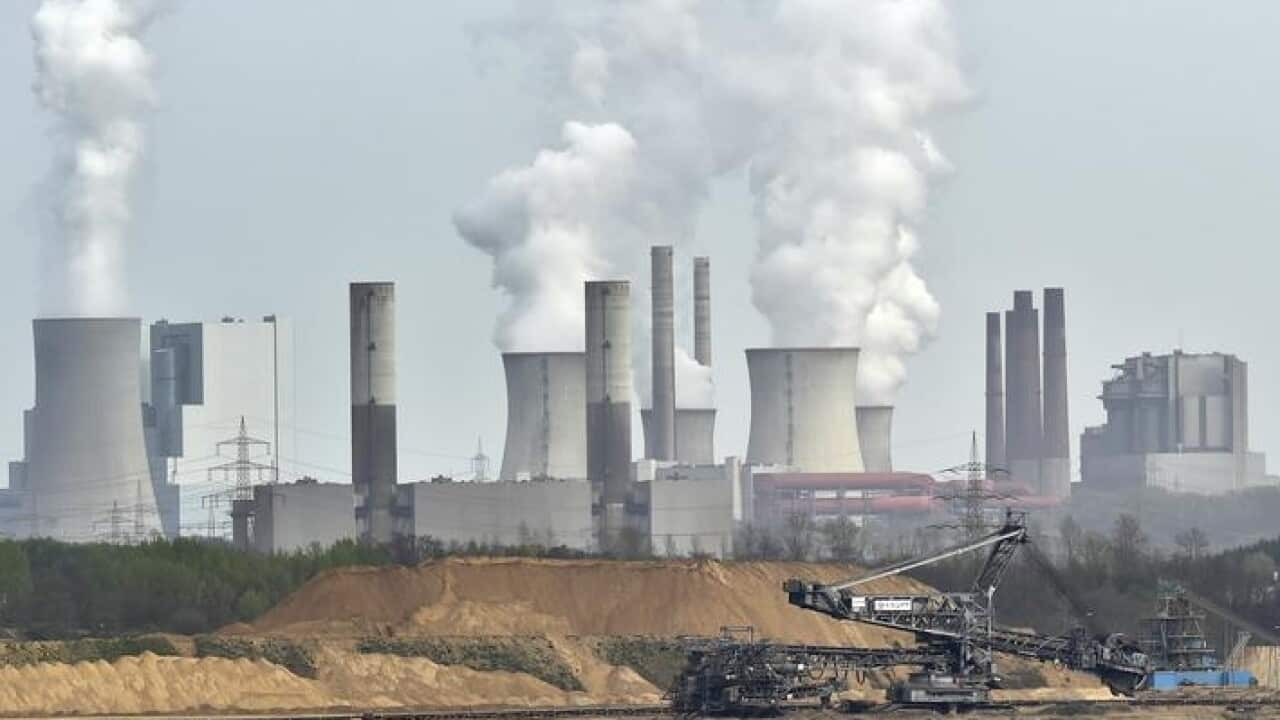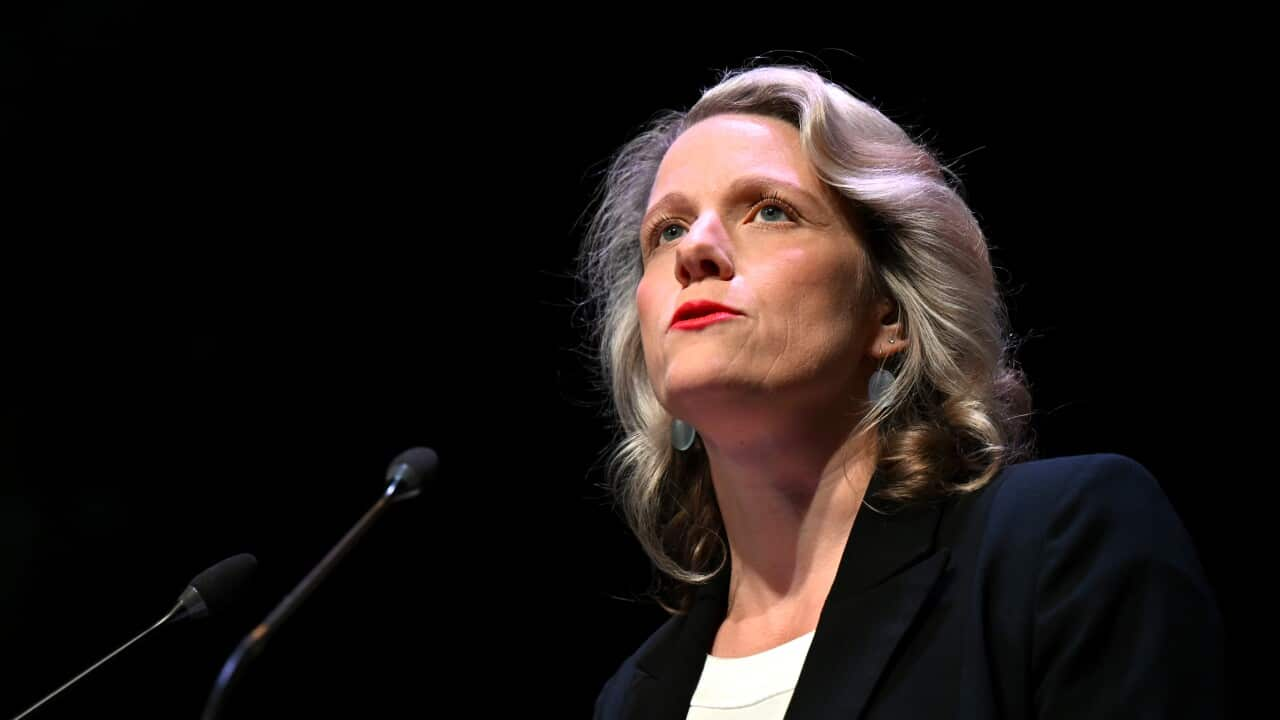One striking effect of the shutdown of much of normal human activity in recent weeks has been something of re-emergence of the natural world.
Elephants have been spotted on the street in India and people in the northern Indian state of Punjab can see the Himalayas for the first time in decades.
Pollution levels are down.
And inconveniences like traffic jams are basically non-existent.
It’s something of a welcome side effect of a terrible time and it has people the world over thinking about how they can hang onto some of these environmental gains, as the world tries to get past COVID-19, and back to normal.
President of the European Commission, Ursula Von Der Leyen, said last week countries should not simply return to business as usual.
"As we now plan to slowly go back to work and to invest billions of euros to restart our economy, we should avoid falling back to old polluting habits. Instead, we should bounce back better from this pandemic," she said in Brussels last week.
"We can make our society and our planet healthier by investing in renewable energy, by driving clean cars, by renovating our houses and making them energy efficient, by buying sustainable food, reusing materials rather than throwing them away, or producing low carbon steel."
Australians consider different direction
There are similar feelings in Australia.
Emeritus professor at the Australian National University in Canberra, Will Steffan, said the COVID-19 shutdown had given many Australians pause for thought about the future.
"We need to think carefully about what sort of system - economic system, energy system and so on - we go back to. And I think there’s been a lot of discussion already about that," Dr Steffen, who is a member of the Climate Council, told SBS News.
"I think a lot of people are thinking, because they’ve had forced changes in their lifestyles because of the COVID-19 crisis, I think it is triggering some thought about what sort of society, what sort of lifestyle, do we want to have when we come out of this crisis. “And can we head off in a different direction that gives us social benefits, as well as tackling some of the longer-term environmental challenges like climate change, like biosphere degradation.”
“And can we head off in a different direction that gives us social benefits, as well as tackling some of the longer-term environmental challenges like climate change, like biosphere degradation.”

Coronavirus has made many Australians rethink the future. Source: AAP
Dr Laura Schuijers is an environmental lawyer, and a research fellow in climate solutions at the University of Melbourne.
She also says there's now a valuable opportunity to make our lives more environmentally-friendly.
"It’s tempting to placate anxiety and everything we’re feeling at the moment, with normalcy - going back to what we know, and the accompanying thoughts - but, honestly, our normal wasn’t perfect.
"I mean, right before this in Australia, we had a devastating fire season. We were seeing the impact that business as usual was having on the environment and it wasn’t looking good.”
Environment v the economy: a fight that need not happen
As world leaders look to reopen an economy battered by coronavirus, Dr Schuijers said it’s important not to think of the environment and the economy as two competing claims.
She said it was important to remember that a healthy economy cannot function properly without a healthy environment.
"We don’t want to be thinking that our economic and social wellbeing needs to be pitted against the environment, because, actually, our wellbeing and our prosperity depend on a healthy environment.
“We need a stable climate system to avoid more bushfires. We need clean water for agriculture, and clean air to survive. We know that we need resources to produce things.”
Every country will face its own set of challenges trying to emerge from the COVID-19 crisis.
Dr Steffen said Australia is better placed than most countries when it comes to trying to combine economic recovery with environmental improvement.
He says a key area could be renewable energy, and Australia’s ability to export it, instead of fossil fuels like coal.
"I think we’re in good shape. We, for example, if you’re talking about the energy system, we’ve got probably the best renewable resource in the world, in terms of solar and wind. And when we think a little bit beyond our own electricity needs, you can start thinking of very substantial export industries.
"Instead of simply digging up coal and selling it, we could actually produce hydrogen, using renewable energy. And there will be a large and growing market in East Asia for that as a clean energy source.
“So, I think if we rethink the directions we want to go in, we can connect up with the rest of the world, and undoubtedly there are going to be changes happening there, as other countries come out of their crises as well." Proposals to invest more in renewable energy are not new.
Proposals to invest more in renewable energy are not new.

Carbon dioxide emissions are set to fall as energy demand slumps during the coronavirus pandemic. Source: AAP
Debate has raged about the federal government’s renewable energy targets and efforts to reduce emissions for years now.
Dr Steffen said Australians needed to reach consensus on the issue if the country is to come out the other side of COVID-19 cleaner and greener.
"We’re going to need an all levels of society approach to really re-making our energy system, thinking perhaps more after this crisis about maybe manufacturing a few more things here, rather than relying on imports. These are the conversations we need to have.
"And I think we need to couch them in terms of: if we really do transform our societies, can we do this in a direction that delivers a cleaner society, better environmental outcomes, more employment, and healthier lifestyles.”










